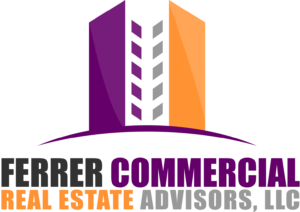Below please find a broad overview listing key South Carolina real estate matters that may differ from other states’ real estate procedures.
- Attorney-Closing State. A licensed South Carolina lawyer must conduct closings in South Carolina that involve real estate. Therefore, in South Carolina, title companies do not close real estate transactions, whether it be a conveyance, financing secured by a mortgage, or a modification thereof. Most real estate attorneys are agents for one or more title companies, and therefore provide title insurance in their capacity as an agent, and conduct the closing in their capacity as buyer’s counsel.
- Transfer fees. South Carolina law requires a “recording fee” of $3.70 per $1,000 of consideration. This fee is customarily paid by the seller. There are certain exemptions from the “recording fee,” such as the case where the value of the property is less than $100. No “recording fees” are paid with respect to recording leases, mortgages or other debt instruments. The “recording fee” does not include the nominal per-page fee that the local Register of Deeds Office or Register of Mesne Conveyances Office charges to file a given document in its records.
- Withholding Requirements. In the case of the sale of property, South Carolina law requires that, if the seller is not a resident of South Carolina, a portion of the proceeds otherwise payable to the seller must be withheld at closing. This is similar to the federal Foreign Investment in Real Property Tax Act, which requires withholding where the seller is not a US citizen. In South Carolina, the seller is required to sign an affidavit stating whether the withholding requirement applies or whether the seller can claim an exemption from withholding.
- Transfer of Business Assets/ Tax Lien. South Carolina law provides that where the majority of the assets of a business are sold, any tax that the business generated and was due on or before the transfer date constitutes a lien against the assets “in the hands of the purchaser.” Closing attorneys often handle this issue by obtaining a Certificate of Tax Compliance from the South Carolina Department of Revenue. This should be requested by seller at least 10 business days prior to closing and is only effective for 30 days from issuance.
- Recordable Form of Documents. To be “recordable” in South Carolina, each party’s signature in a document (e.g., mortgage, deed, easement, etc.) must be witnessed by two people and must be notarized by a Notary Public.
- Tax Incentives. There are a number of tax incentives that may be available from the State and local governments for projects of certain sizes and job growth. We would be happy to discuss these incentives with you.
- Real Estate Taxes. In South Carolina, taxes for real property are paid in arrears. Tax bills are generally mailed in October and payment is due by January 15th. Property taxes are calculated, in part, using an assessment ratio determined by the applicable use of the property. For example, an assessment ratio of 4% is applied to residential, owner- occupied real estate, while a 6% assessment ratio is applied to commercial and residential non-owner-occupied real estate and the manufacturing assessment ratio is 10%. The fair market value of real property is subject to reassessment every five years due to periodic countywide reassessments. Any increase in the fair market value of real property resulting from this periodic reassessment is limited to 15%; however, this limit does not apply to the fair market value of additions or improvements to real property in the first year those improvements are subject to property taxes. Additionally, since 2007, the fair market value of real property is reassessed whenever an “assessable transfer of interest” occurs. Such a transfer includes many different kinds of conveyances and transfers of interest, including traditional conveyances by deed.
The above information is intended to serve as a broad overview for educational purposes only and is not intended as legal advice.
